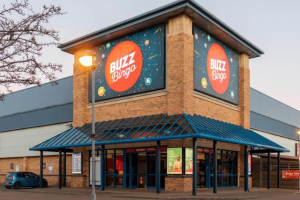Devastation looming for UK steel industry

THOUSANDS of steel jobs are at risk after Tata Steel decided to cut its losses and exit its UK business.
Tata Steel Europe employs about 15,000 people with 16 of its 28 sites in the UK. Although its largest site is Port Talbot, south Wales. Its sites include Shotton, North Wales, where it has a factory for galvanised and plastic coated sheeting.
It has owned the steelmaking plants since 2007 when it bought Corus Group, which had been formed in 1999 through the merger of British Steel and Koninklijke Hoogovens.
But the group has said ownership of the business has cost it £2bn in the last five years, while its operations are reported to be losing £1m a day. The “deteriorating financial performance” of its UK business had forced it to review its ownership.
After a board meeting in Mumbai, India, its parent company described a proposed turnaround plan as “unaffordable”, “inherently very risky” and “highly uncertain” and announced it would not continue to support these losses.
In a statement, Tata Steel said it had told its European management to “explore all options for portfolio restructuring including the potential divestment of Tata Steel UK, in whole or in parts.
“Given the severity of the funding requirement in the foreseeable future, the Tata Steel Europe Board will be advised to evaluate and implement the most feasible option in a time bound manner.”
Tata Steel Europe is in talks to sell its long products division – which includes its Scunthorpe steelworks and sites in Teesside and Scotland – to venture capital firm Greybull. Exclusive talks have been taking place since Christmas, and Tata said they would “continue”.
Those talks have involved the UK Government, which is reported to be prepared to commit up to £80m in the form of a loan to support Greybull’s £400m proposals.
Tata also said it has “been in deep engagement” with the Government for months to find ways it can support the company, and “these discussions are ongoing and will continue”.
However it highlighted the long-term factors which have hit the group’s UK business, and which it expects to continue to have an impact – blaming global oversupply of steel, significant increase in third country exports into Europe, high manufacturing costs, continued weakness in domestic market demand in steel and a volatile currency.
Len McCluskey, general secretary of Unite, said: “This is a very dark day for the proud communities and a proud industry which is now on the verge of extinction in this country.”








